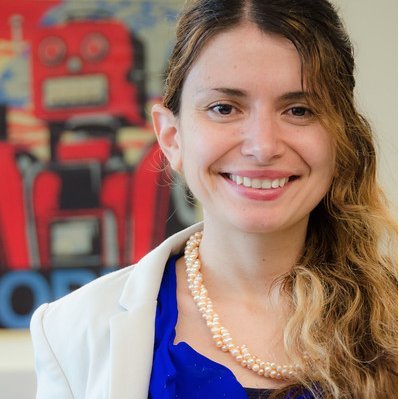
EAAMO colloquium SERIES
Upcoming Events

Lisa Cook: "Mobile Money and the COVID-19 Crisis"
Direct payments from the $2.2 trillion CARES Act passed by Congress should get to roughly 80% of Americans - tax filers and those receiving federal assistance - relatively quickly, about three weeks. The other 20% represent some of the most vulnerable people in the economy - the "underbanked" (19% of Americans), those who don't make enough income to file tax returns (or don't file for other reasons), and those for whom addresses have changed or are not readily available. Many are low-wage workers among the record 30 million who filed for unemployment insurance in the last four weeks. This pandemic and resulting human, economic, and financial crises are unfolding at break-neck speed, and bills were and are still due. These payments of $1,200 per adult will be a critical first lifeline for many households and the economy. To minimize the likelihood that an illiquidity crisis becomes a bankruptcy crisis in the coming weeks and months, Congress and the Treasury (with the Federal Reserve and FDIC) must act with all deliberate speed to get people paid now and not months from now. Ninety-six percent of American adults have cell phones or smartphones that could be used to speed up payments to those who are not on IRS or federal assistance rolls. A substantial share of smartphone users already makes payments using mobile platforms. Both the literature and recent experience of financial institutions suggest that the mobile money infrastructure that already can be leveraged to great effect in this crisis, and, more generally, the digital infrastructure of the federal government must be upgraded before the next crisis.

Special Talk - Araba Sey: "What Not to Expect (from ICTD research and interventions)"
Advances in information and communication technologies (ICTs) have energized governments, global agencies and non-profit organizations to seek applications of these technologies to social and economic development. Researchers and other scholars have followed suit with a slew of research and intervention projects to explore, understand or measure the potential and actual impacts of ICTs. The results so far are, at best, mixed. I will share observations from several years of organizing research on ICTs and development around the world. Research findings and fieldwork experiences provide insights on what not to expect from ICTD research and interventions.

Jim Leape: "Harnessing Global Markets for a Transition to Sustainability"
Global markets have been vital engines of economic growth. They have also driven massive depletion of natural resources, such as forests and fisheries, and the escalation of greenhouse gas emissions. In recent years, we've seen NGOs multinational companies, and sometimes international organizations and governments, work together to harness global markets to spur a transition to sustainability. In this session we'll explore efforts to address deforestation and overfishing. We'll look at how these collaborations have been able to drive change and consider some of the challenges they face in translating commitments into action and taking action to scale.
Past Events
Recent talks
Medium Article - Dr. Lisa Cook
“Can mobile money be used to more efficiently and equitably distribute emergency funds to families affected by the COVID-19 economic crisis?”
Medium Article - Professor Bistra Dilkina


































